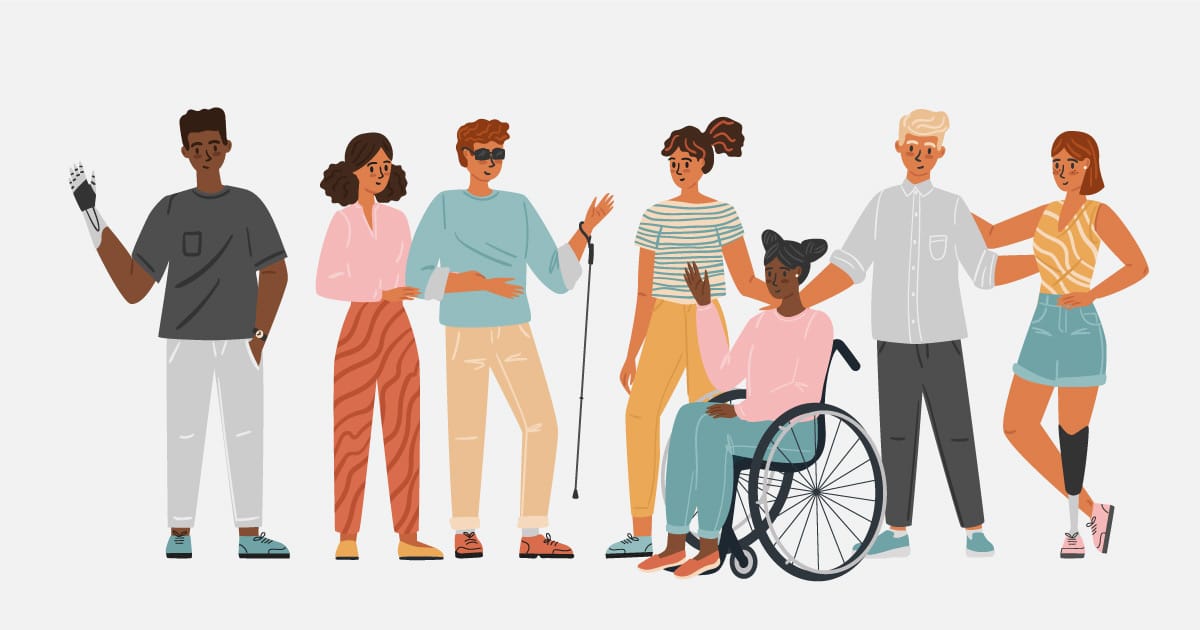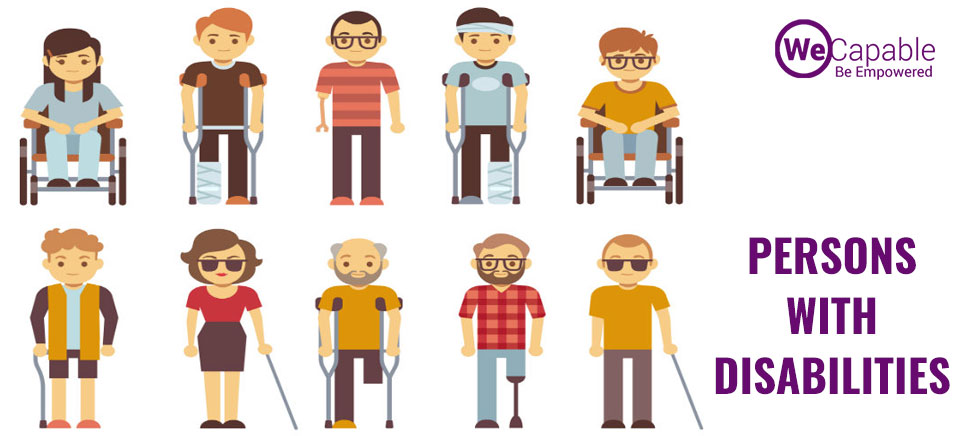What Disability Does Steve Way Have? Unpacking His Journey And Public Role
Many people, it seems, have become quite familiar with Steve Way through his standout performances, particularly in "Man Like Mobeen." He has a distinctive presence, and a question that often pops up for those watching him is about his physical condition. It is a very natural curiosity, and people often wonder, what disability does Steve Way have? He brings a unique perspective to his roles, and his way of moving and speaking is part of what makes him so memorable on screen, so you know, it makes sense that folks are curious.
Steve Way has, it turns out, lived with cerebral palsy his whole life. This condition shapes how he moves and, to a degree, how he speaks, yet it clearly has not stopped him from pursuing a career in entertainment. His journey offers a really powerful example of what people can achieve, even when facing significant physical challenges, and it is almost inspiring to see.
This article aims to shed some light on Steve Way's condition, cerebral palsy, and how he has navigated his career. We will also, in a way, touch upon what disability means more broadly, drawing on some general information about how conditions like this are understood and the kinds of support that can be available to people. It is about gaining a fuller picture, you know, of both Steve's story and the wider conversation around disability.
Table of Contents
- Steve Way: A Brief Look at His Life and Work
- Understanding Steve Way's Condition: Cerebral Palsy
- Steve Way's Impact and His Public Voice
- Disability in a Wider View
- Support Systems for People with Disabilities
- Frequently Asked Questions About Steve Way's Disability
Steve Way: A Brief Look at His Life and Work
Steve Way has really made a name for himself in the entertainment world. He is probably best known for his role as the main character's best friend in the popular BBC Three comedy series "Man Like Mobeen." In this show, he plays a character who also has cerebral palsy, which, it is almost like, allows him to bring a very authentic touch to the role. His humor and genuine portrayal have won over many viewers.
Beyond "Man Like Mobeen," Steve Way is also a stand-up comedian. He often incorporates his experiences living with cerebral palsy into his comedy routines, using humor to address misconceptions and share his personal outlook. This approach, you know, makes his comedy both funny and thought-provoking, and it is a bit of a clever way to connect with an audience.
His work on screen and on stage has really helped to increase the visibility of people with disabilities in mainstream media. He shows that talent knows no bounds, and that a physical condition does not define a person's abilities or their capacity to make people laugh or tell a good story. It is quite a powerful message, really.
Personal Details and Biography
| Detail | Information |
|---|---|
| Full Name | Steve Way |
| Known For | Actor, Comedian |
| Notable Work | "Man Like Mobeen" (as 'Eight') |
| Condition | Cerebral Palsy |
| Nationality | British |
| Public Role | Advocate for disability awareness |
Understanding Steve Way's Condition: Cerebral Palsy
So, the condition Steve Way has is cerebral palsy, which is a group of permanent movement disorders that appear in early childhood. It is caused by non-progressive disturbances that occur in the developing fetal or infant brain. This, in a way, affects muscle tone, movement, and motor skills, and it can show up in different ways for different people, so it is not a single experience, you know.
As "My text" points out, disability often comes from the interaction between individuals with a health condition, like cerebral palsy, and personal and environmental factors. For Steve, this means that while cerebral palsy is a part of his physical makeup, how he experiences it is also shaped by things like public attitudes, whether places are easy to get around, and the amount of social backing he gets. It is, you know, a very important distinction to make.
In Steve Way's case, his cerebral palsy affects his gait, meaning how he walks, and it also impacts his speech, making it sometimes a little less clear or a bit slower. These are common characteristics of cerebral palsy, but it is important to remember that the severity and specific ways it presents can vary widely from one person to another. He has, apparently, learned to manage these aspects very well in his daily life and in his professional work.
People with cerebral palsy might also experience other related issues, such as difficulties with fine motor skills or balance. However, the condition does not affect intelligence, which is a common misconception. Steve Way's sharp wit and comedic timing are clear proof of his cognitive abilities, and it is something that really shines through in his performances, you know, quite clearly.
Steve Way's Impact and His Public Voice
Steve Way's presence in the public eye has, arguably, been a huge step forward for disability representation. By openly living and working with cerebral palsy, he challenges stereotypes and shows a wider audience what life with a disability can look like. He is not just playing a character; he is, more or less, sharing a part of his real self, which is very powerful.
His comedy, in particular, often uses his experiences with disability as a source of humor, but it is never at the expense of his condition or other people with disabilities. Instead, it is about finding the funny in everyday situations, and about using laughter to break down barriers. This, you know, helps people feel more comfortable talking about disability, and it is a pretty effective way to do it.
Through his roles, Steve Way has helped to humanize disability for many viewers who might not have had much contact with disabled people before. He shows that people with disabilities are just that: people, with hopes, dreams, frustrations, and a sense of humor, just like everyone else. It is a very important message, and one that resonates deeply.
His visibility helps to shift public perception from pity or discomfort to acceptance and understanding. It encourages a more inclusive view of society, where differences are seen as part of the rich tapestry of human experience, rather than something to be overlooked or hidden. This, actually, is quite a significant contribution he makes.
Disability in a Wider View
When we talk about disability, it is helpful to remember that it is a very broad term, and it encompasses a huge variety of experiences. As "My text" explains, disability refers to the interaction between individuals with a health condition, like cerebral palsy, and personal and environmental factors. These factors can include negative attitudes, places that are hard to get into, or not enough social backing. It is, you know, a complex picture.
The World Health Organization (WHO), as mentioned in "My text," highlights that more than a billion people around the globe experience some form of disability. This number is, in some respects, on the rise, partly due to an aging population and more chronic conditions. This means that understanding disability is becoming even more important for everyone.
People with disabilities, according to WHO information, often face greater challenges in areas like health care, education, and finding work. They can experience poorer health outcomes, lower educational achievements, and fewer economic chances. This is not because of their condition alone, but because of the barriers and inequities they face in society. It is, basically, a societal issue as much as a personal one.
The goal, then, is to work towards a society where these barriers are removed, and everyone has the chance to participate fully. This means creating accessible environments, challenging negative attitudes, and ensuring that support systems are in place for those who need them. It is, you know, about health equity and making sure everyone has the same opportunities to thrive.
Support Systems for People with Disabilities
While Steve Way has found success in his career, it is worth knowing that there are various support systems available for people with disabilities who may need help with daily living or financial stability. "My text" mentions that Social Security Disability Insurance (SSDI) and Supplemental Security Income (SSI) are two key programs in the United States that can provide monthly payments. These programs are, in a way, designed to help people who have conditions that limit their ability to work.
SSDI is for those who have paid into Social Security through their jobs and have a disabling condition that stops them from working. SSI, on the other hand, is for adults and children who have a disability, blindness, or are age 65 or older, and have little or no income and resources. These programs, it is almost like, provide a safety net for many who face significant challenges due to their health conditions, and they are pretty important for a lot of people.
Applying for these benefits can be done online, making it, in some respects, more convenient for people to access support from their homes. The process involves looking at a person's past work history and their current ability to work, to decide if they qualify for help. It is, you know, a system designed to provide essential support for those who truly need it, and it is there to make a difference.
Beyond financial support, there is also a focus on ensuring that people with disabilities have access to the highest possible standard of health care, just like anyone else. This includes addressing unmet health care needs and working to close avoidable health gaps. The aim is to create a more inclusive world where everyone can live a full and healthy life, regardless of their physical condition, and that, it turns out, is a shared goal for many.
Frequently Asked Questions About Steve Way's Disability
What condition does Steve Way have?
Steve Way has cerebral palsy. This condition affects his movement and speech, and it is something he has lived with since childhood. He has, apparently, been very open about it, and it is often discussed in relation to his acting roles and comedy work, so it is quite well known.
Is Steve Way disabled in real life?
Yes, Steve Way is disabled in real life. He genuinely lives with cerebral palsy, and his portrayal of characters with disabilities, particularly in "Man Like Mobeen," draws from his own experiences. This, you know, adds a layer of authenticity to his performances, and it is something that really comes through.
How does Steve Way's disability affect his comedy?
Steve Way often uses his experiences with cerebral palsy as material for his comedy. He finds humor in everyday situations related to his condition, which helps to break down barriers and challenge stereotypes. His approach, in a way, makes his comedy both funny and insightful, and it is a very clever way to connect with an audience, too.
Learn more about disability awareness on our site, and you can also find more information about support for people with disabilities.

Tiffany Yu: How To Build a More Disability-Inclusive Culture

Persons with Disabilities: Definition, Rights, States and More

Common Barriers for Individuals with Disabilities in Public | TekWay